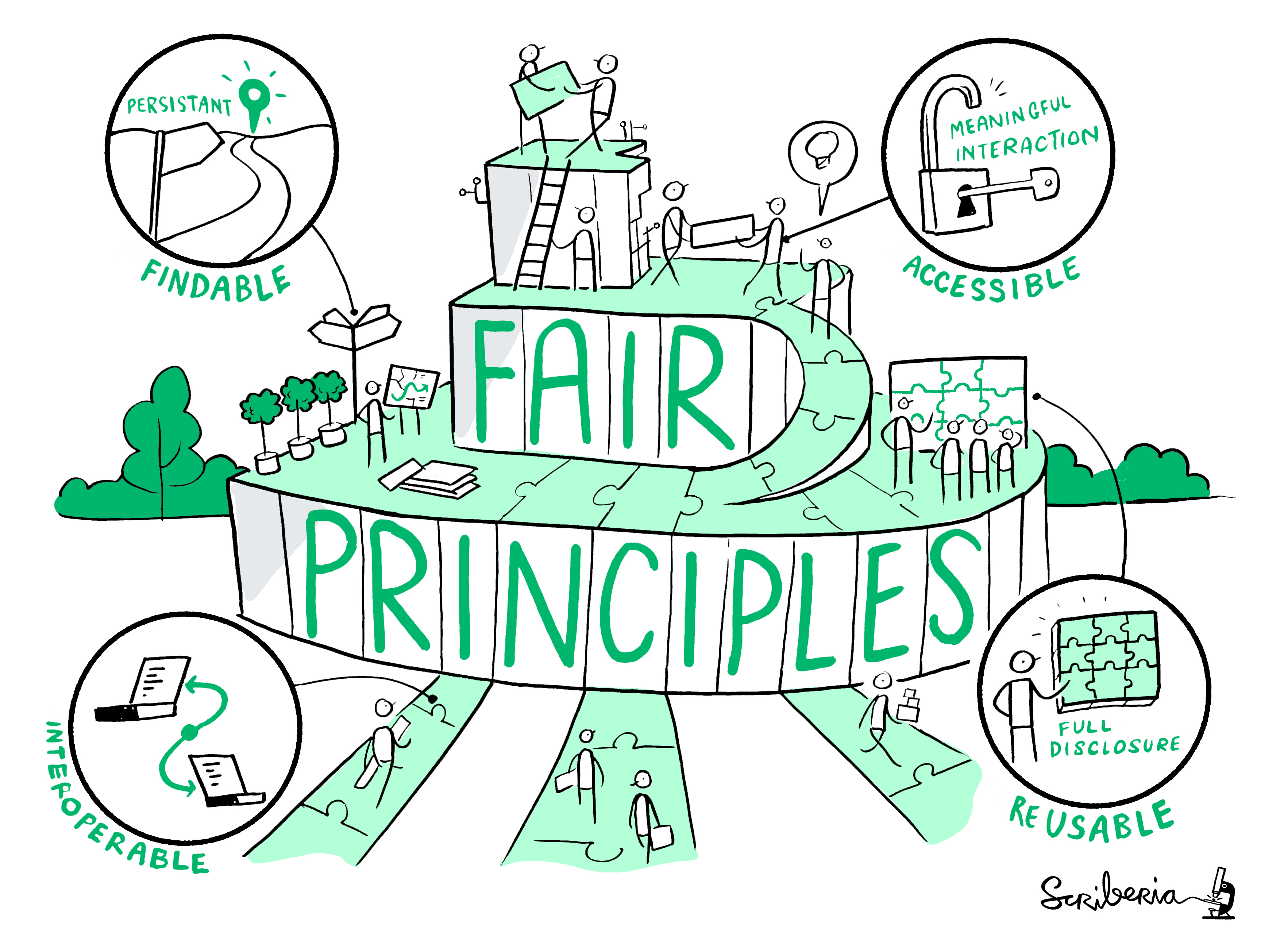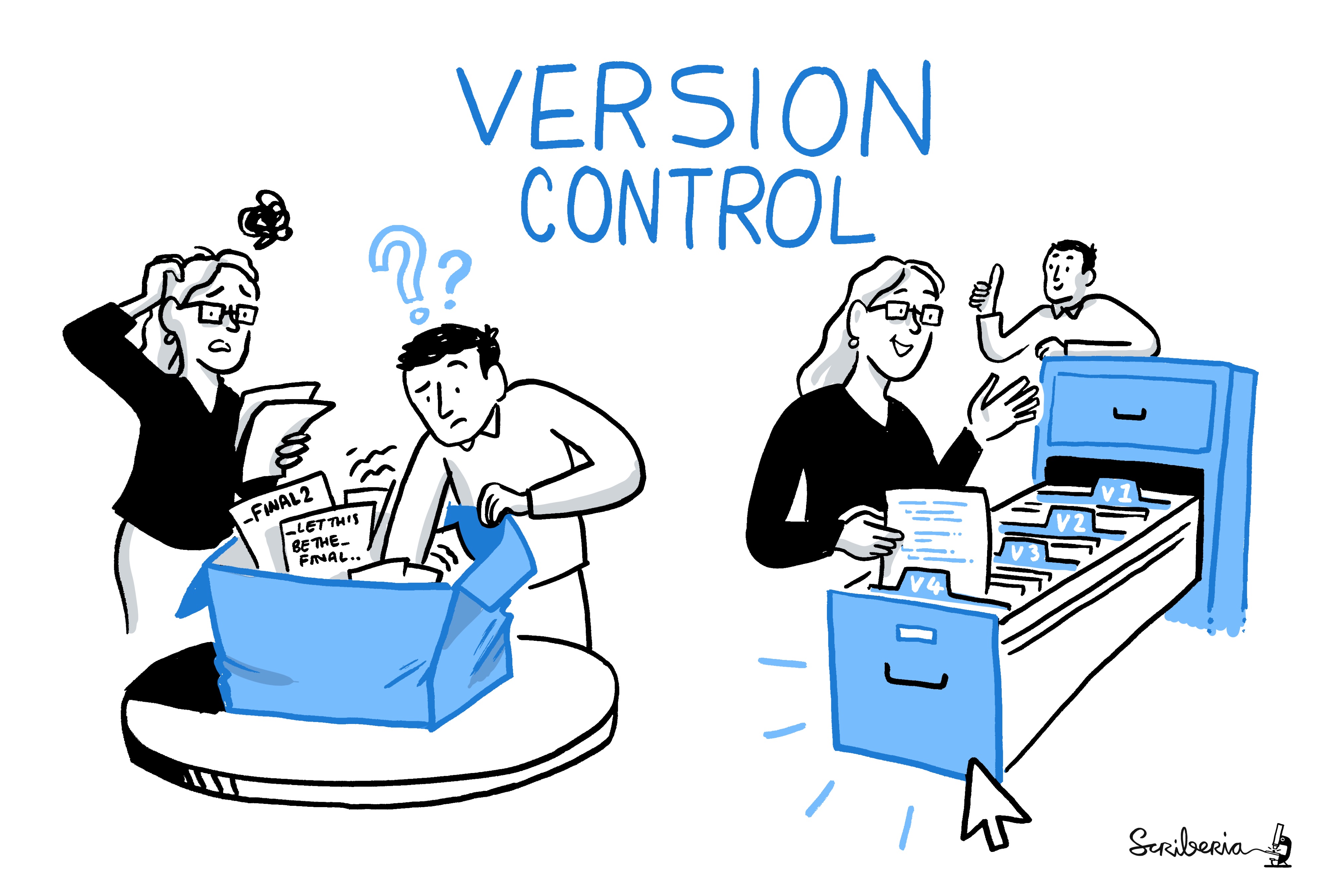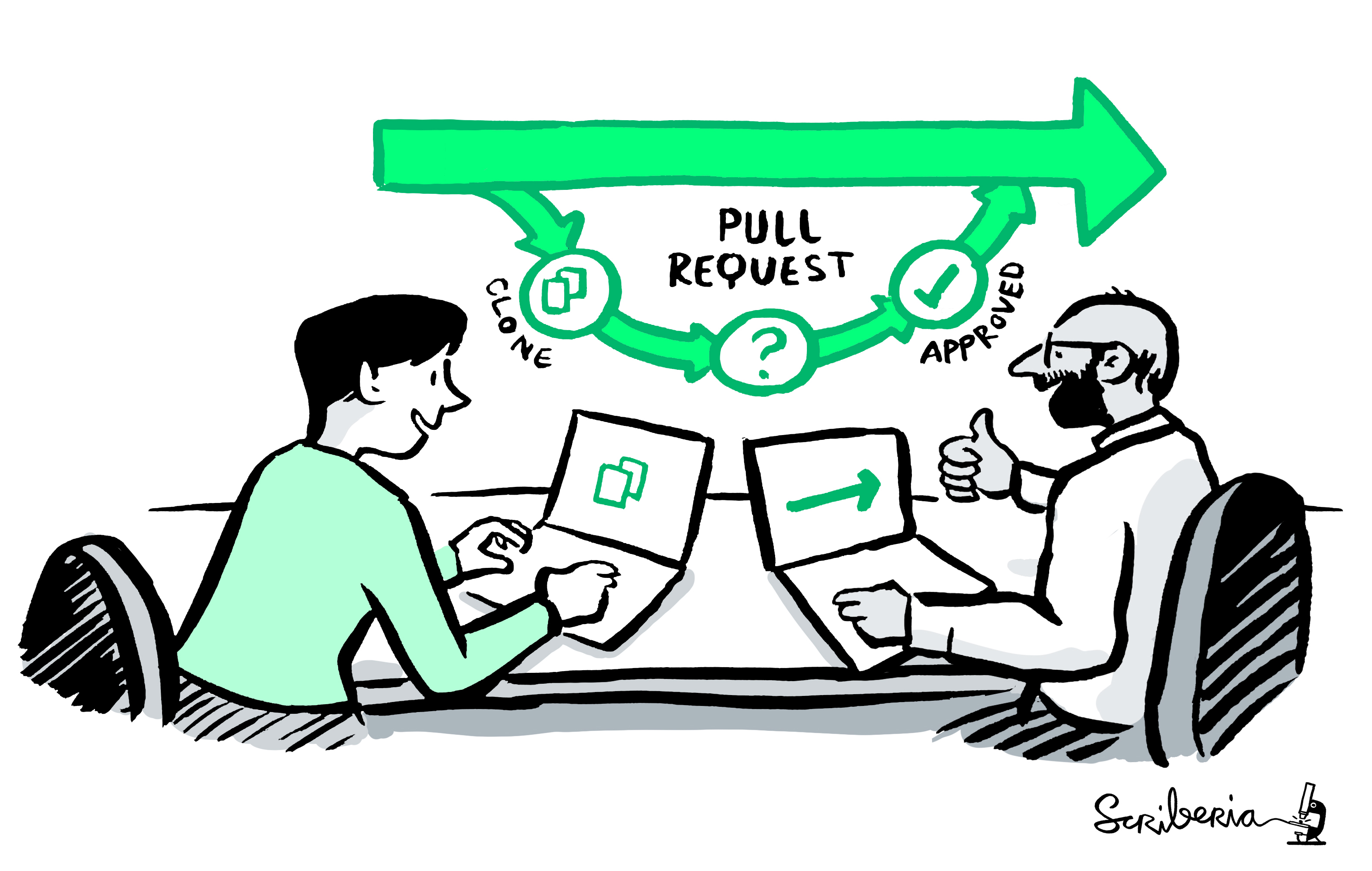03:00
Reproducible and FAIR Teaching Materials
Digital Research Academy Train the Trainer program
August 29, 2023
Overview
Outline
- Definitions (FAIR/Reproducibility) - Esther
- Introduction to tools (Quarto and GitHub) - Lennart
- If there is time: Demo?
Learning objectives 1
- You can share your teaching materials in accordance with FAIR principles
- You can develop reproducible teaching materials collaboratively using tools like Quarto and Git(Hub)
What is FAIR?
Findable
- Descriptive metadata and persistent identifier
Accessible
- Data could be openly available OR authentication and authorisation procedures are necessary
Interoperable
- Data needs to be integrated with other data and interoperate with applications or workflows
Reusable
- Documentation and license
How does FAIR apply to teaching materials?
Teaching materials can be considered as similar/equal to research outputs. FAIR principles also apply!
FAIR teaching materials?
Findable/Accessible
- Share your slides/materials on a data repository to receive a DOI and ensure long term preservation
- Share your materials via a journal article
- Share your materials in a training material registry
- TesS (ELIXIR)
- OERcommons
Interoperable
- Use commonly used formats (powerpoint) or open formats such as markdown documents
- Pdf is open but difficult to reuse!
- Use common terminology
- Instructor/Helpers for Carpentry workshops
- Integrate with other resources where possible
- Citations
- Reuse of slides
Reusable
- Add documentation
- Information sheets
- Add metadata
- learning objectives!, required resources, structure
- Share under an Open License such as CC-BY
- For slides/data: Creative Commons Licenses
- For software/code: Choose a License
Ten simple rules for making training materials FAIR
https://doi.org/10.1371/journal.pcbi.1007854

Illustration for paper “Ten simple rules for making training materials FAIR” (CC-BY 4.0)
“Reproducible and FAIR Teaching Materials”
What is Reproducibility?
“[…] when the same analysis steps performed on the same dataset […] produce the same answer.” (Turing Way)

How does reproducibility apply to teaching materials?
Comes close to the Interoperability and Reusable principles:
- Integrating materials
- Formatting
- Software/code
- Similar learning goals/objectives and outcomes
Practice what you preach!
By setting up your teaching materials in a reproducible manner, you demonstrate the value of reproducibility directly
FAIR and reproducible training materials are beneficial to you!
- Information sheets saves time in sharing information
- Clear communication (or you can update the information!)
- Saves time in on-boarding/re-using materials
- Preserved & Findable
- Easy to share within and outside your team
- Provides you and collaborators with credit (visibility, DOI, citations)
Questions about FAIR/Reproducible?
Break
What is Quarto?
About Quarto
- Quarto is a new, open-source, scientific and technical publishing system
- Publish reproducible presentations, websites, blogs, and books in HTML, PDF, MS Word, ePub, etc.
- Consistent implementation of features across outputs: tabsets, code-folding, syntax highlighting, etc.
- Beginner-friendly with helpful guardrails for new learners, incl. YAML completion, informative syntax errors, etc.
- Multi-language support for R, Python, Julia, Observable and more functions via Jupyter
- Quarto extends RMarkdown and shares similarities with Juypter Notebooks.
- Support and community
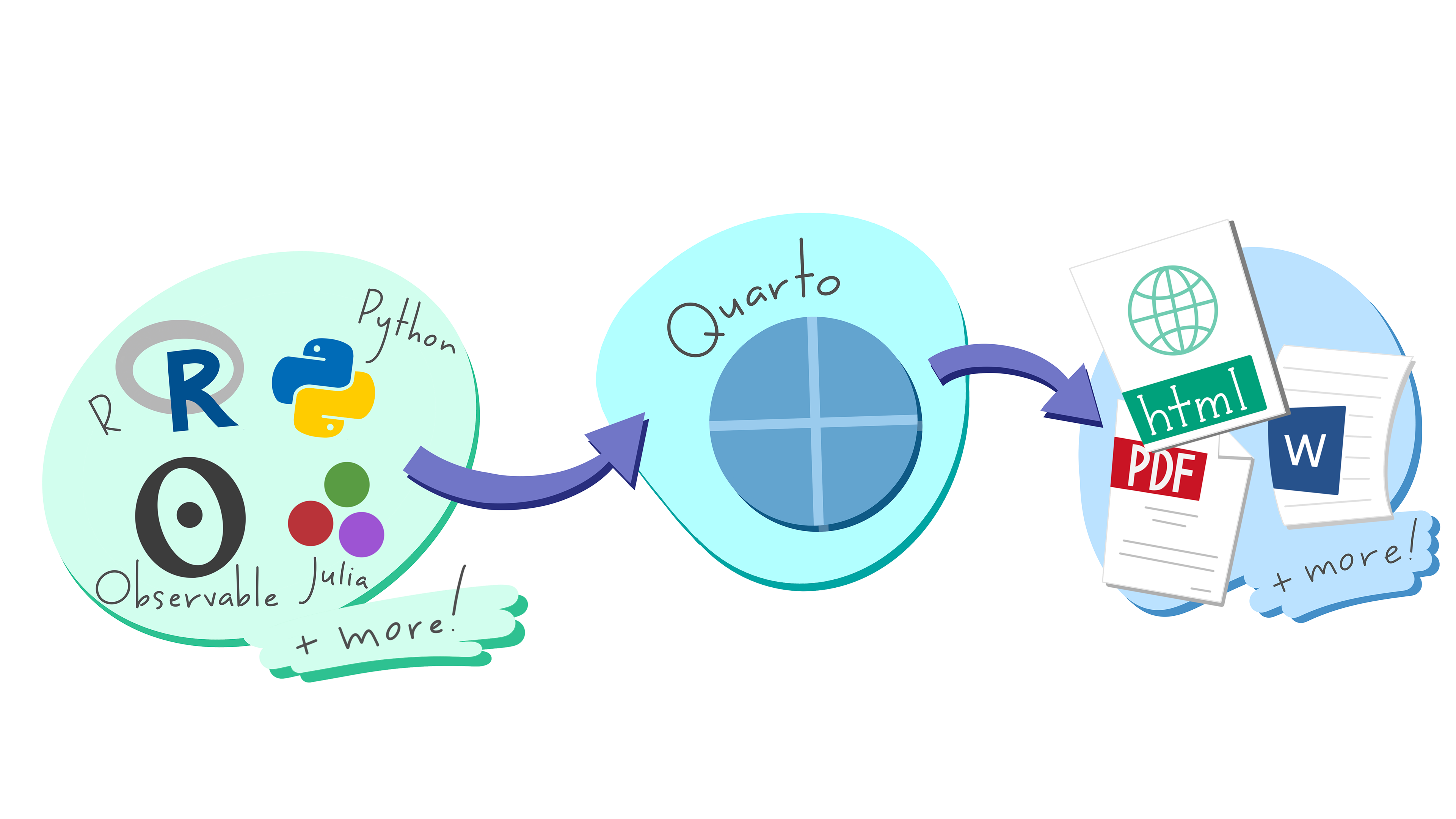
Features of Quarto presentations
taken from this Quarto demo presentation (Source)
Working on teaching materials collaboratively
Why we need version control …
… for code (text files) 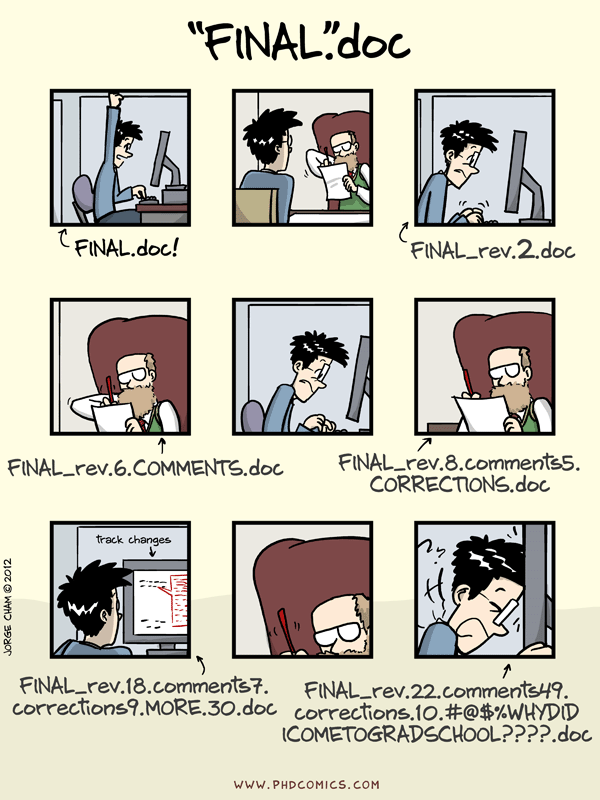
… for data (binary files) 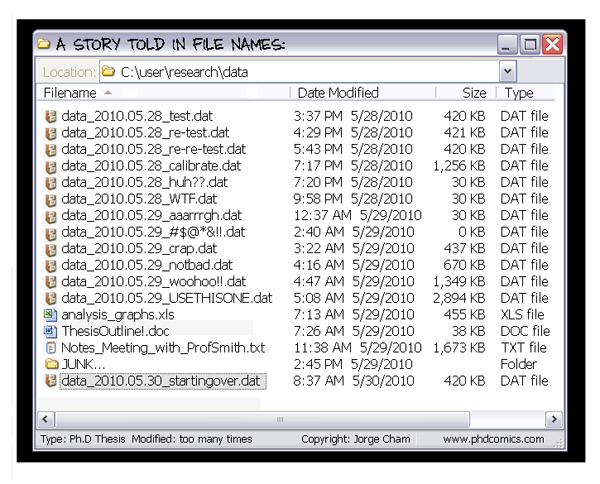
When everything is relevant …
… track everything.
What is version control?
“Version control is a systematic approach to record changes made in a […] set of files, over time. This allows you and your collaborators to track the history, see what changed, and recall specific versions later […]” (Turing Way)
keep track of changes in a directory (a “repository”)
take snapshots (“commits”) of your repo at any time
know the history: what was changed when by whom
compare commits and go back to any previous state
work on parallel “branches” & flexibly “merge” them
“push” your repo to a “remote” location & share it
share repos on platforms like GitHub or GitLab
work together on the same files at the same time
others can read, copy, edit and suggest changes
make your repo public and openly share your work
Example: the GitHub repository for these slides
More benefits of Git(Hub) for (teaching) project management
- Discuss and plan your teaching preparation in issues (even just with your future / past self)
- Ask questions, share ideas and discuss with your community via GitHub Discussions
- Propose changes to the teaching materials using pull requests 1
- Create a fork of someone else’s repository and extend their teaching materials
- Manage access to your teaching materials with detailed permissions and roles
- Add documentation to your repository or in a separate wiki
- Access to more features and tools for teaching via GitHub Campus Global
Note
- The dominance of GitHub (a for-profit company owned by Microsoft) is not uncontested (see #GiveUpGitHub)
- A project on GitHub is not a FAIR archiving of scholarly outputs (see previous and following slides)
Example: Collaborative workflow with issues and pull requests
Example: Research Data Management 101 Course at TU Delft Library (TNW RDM 101)
Course Manual (Example of a Quarto Book)
Summary: This course provides PhD candidates with the essential knowledge and the core skills to manage research data according to best practice.
Example: Course on “Version Control of Code & Data” at the University of Hamburg
Course Website (Example of a Quarto Website)
Summary: A hands-on seminar about version control of code and data using Git with curated online materials, interactive discussions, quizzes and exercises, targeted at (aspiring) researchers in Psychology & Neuroscience.
Version Control Book (Example for a Quarto Book)
Create a DOI for your teaching materials with Zenodo
“Zenodo, a CERN service, is an open dependable home for the long-tail of science, enabling researchers to share and preserve any research outputs in any size, any format and from any science.” – from the Zenodo GitHub README
Integrate your teaching materials on GitHub with Zenodo
“To make your repositories easier to reference in academic literature, you can create persistent identifiers, also known as Digital Object Identifiers (DOIs). You can use the data archiving tool Zenodo to archive a repository on GitHub.com and issue a DOI for the archive.” – Details in the GitHub documentation
- Navigate to the login page for Zenodo.
- Click Log in with GitHub.
- Review the information about access permissions, then click Authorize zenodo.
- Navigate to the Zenodo GitHub page.
- To the right of the name of the repository you want to archive, toggle the button to On.
Summary
Learning objectives
- You can share your teaching materials in accordance with FAIR principles
- You can develop reproducible teaching materials collaboratively using tools like Quarto and Git(Hub)
Demonstrations
- Archiving a GitHub repository on Zenodo
- Automated deployment of Quarto websites to GitHub Pages
Resources
- Quarto for Academics by Mine Çetinkaya-Rundel
- The Turing Way handbook to reproducible, ethical and collaborative data science
- Richard McElreath (2020). Science as amateur software development. YouTube
Thank you! 🙏
Images: Scriberia with The Turing Way community (License: CC BY 4.0)
💻 Slides: Slides are publicly available at lennartwittkuhn.com/dra-fair-teaching
📦 Software: Reproducible slides build with Quarto and deployed to GitHub Pages using GitHub Actions (details in the Quarto docs)
Source: Source code is available at github.com/lnnrtwttkhn/dra-fair-teaching
🖲️ DOI: 10.5281/zenodo.8296951 (generated using GitHub + Zenodo, see GitHub docs)
License: Creative Commons Attribution 4.0 International (CC BY 4.0)
💬 Contact: We welcome any feedback via email or GitHub issues. Thank you!

